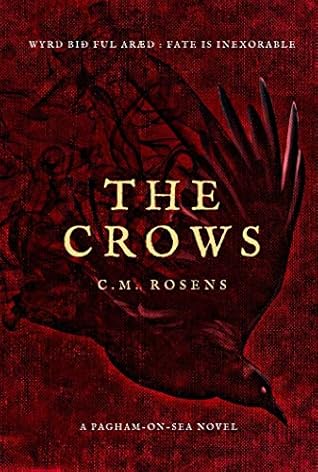More on this book
Kindle Notes & Highlights
I wanted to make the chapter headings fun, so they are all Gothic Horror tropes. They give you a head’s up re: what’s coming, but I like to play with them too...
Britta and 1 other person liked this
In which Carrie Rickard has 33 days left to live
One of the first “classic” books I read was THE SWISS FAMILY ROBINSON as I’d seen the film when I was about 5. It was the first book I had read that had a summary of the chapter below the chapter number, starting off “in which...”
It really stuck in my mind, and so I wanted to play with this for The Crows. Sometimes these highlight the main theme, or hint at something that might not take the direction you expect.
For those who are serious world builders, myself and Guillaume Velde (in one of his ... other incarnations) visited the spot where the town is and figured out where the two train stations would be, and which train lines they would lie on. The Parkway station would be on the line to London Victoria. The Town station would be on the line that runs parallel to the coast.
I didn’t want to do the trope of Poor Heroine with Terrible Parents. Margaret is hard to deal with but she and Carrie are similar in terms of determination and willpower, and I hoped to create a sense of a strained but ultimately affectionate/loving relationship.
Carrie is pretty ordinary with a fairly common family backstory and is based on my own, and several friends/acquaintances. I wanted her to be recognisable, if not relatable.
(Not me, though: I’m the One and Only. Naun broken about me.)
The Sussex dialect barely exists anymore, but Ricky enjoys playing with accent, dialect and language. His family are all... very long-lived... and they still preserve remnants of the Sussex dialect c.19thC in their speech.
I used Rev. W. D. Parish’s A DICTIONARY OF THE SUSSEX DIALECT, to give a flavour of the uncanny in Ricky’s speech as if he and his family are out-of-time somehow.
Wyrd bið ful aræd,
This is line 5b of the Old English poem, THE WANDERER, and translations of it differ. While many 19thC translators use “fate is inexorable”, there are other ways of expressing the meaning of this line in context.
Oldenglishpoetry.camden.rutgers.edu has an article on the translation possibilities of this line.


